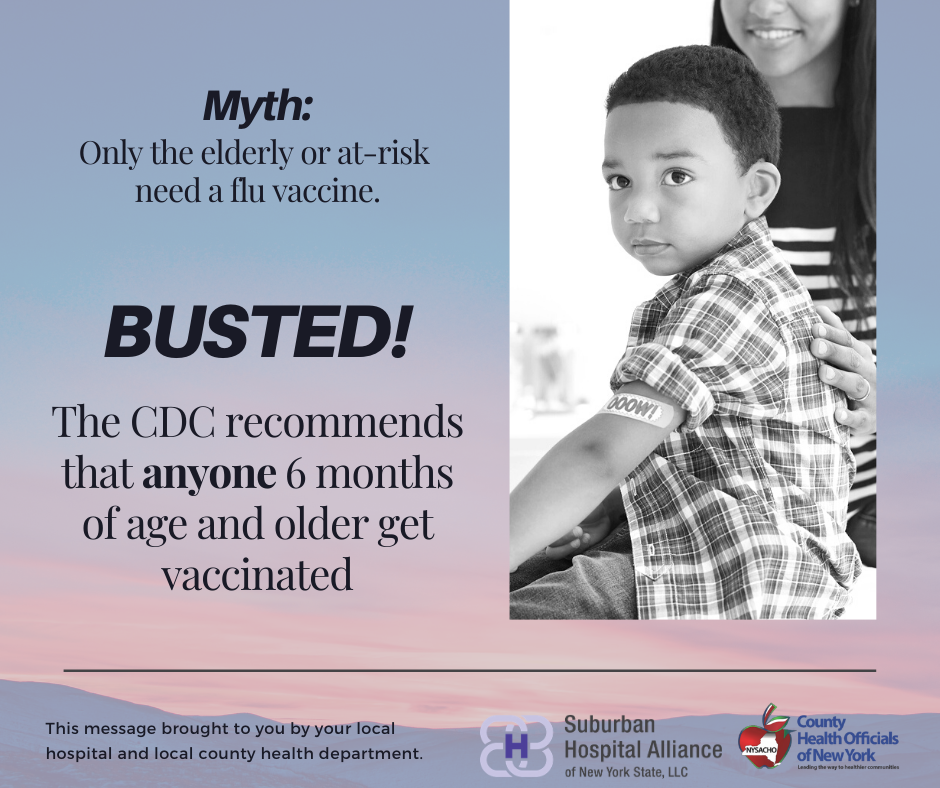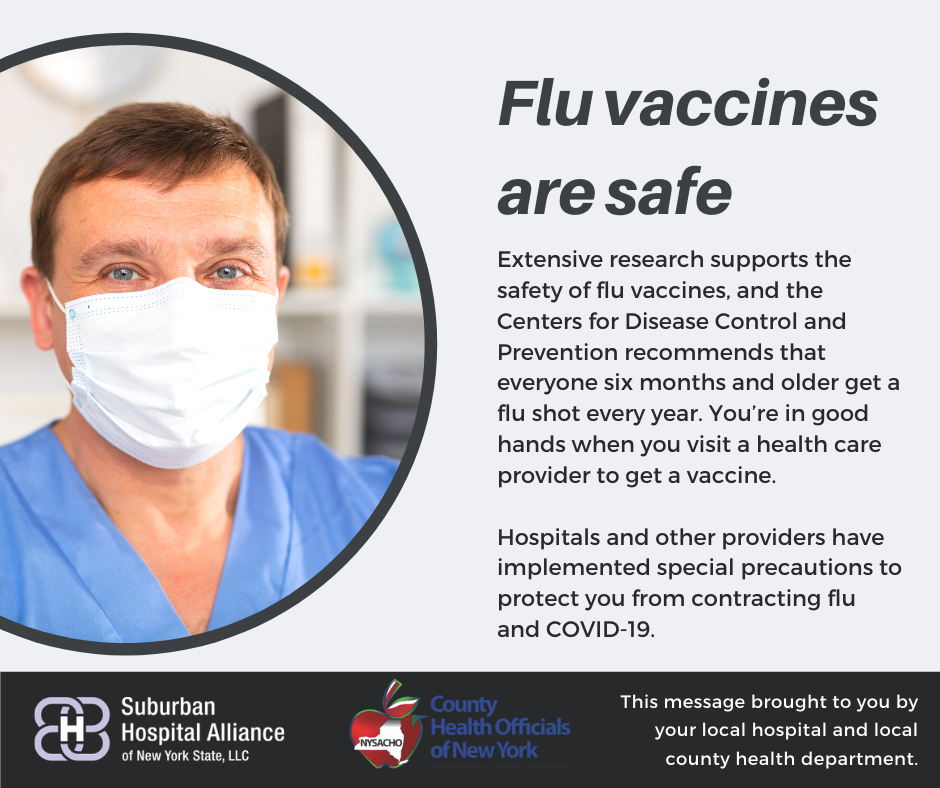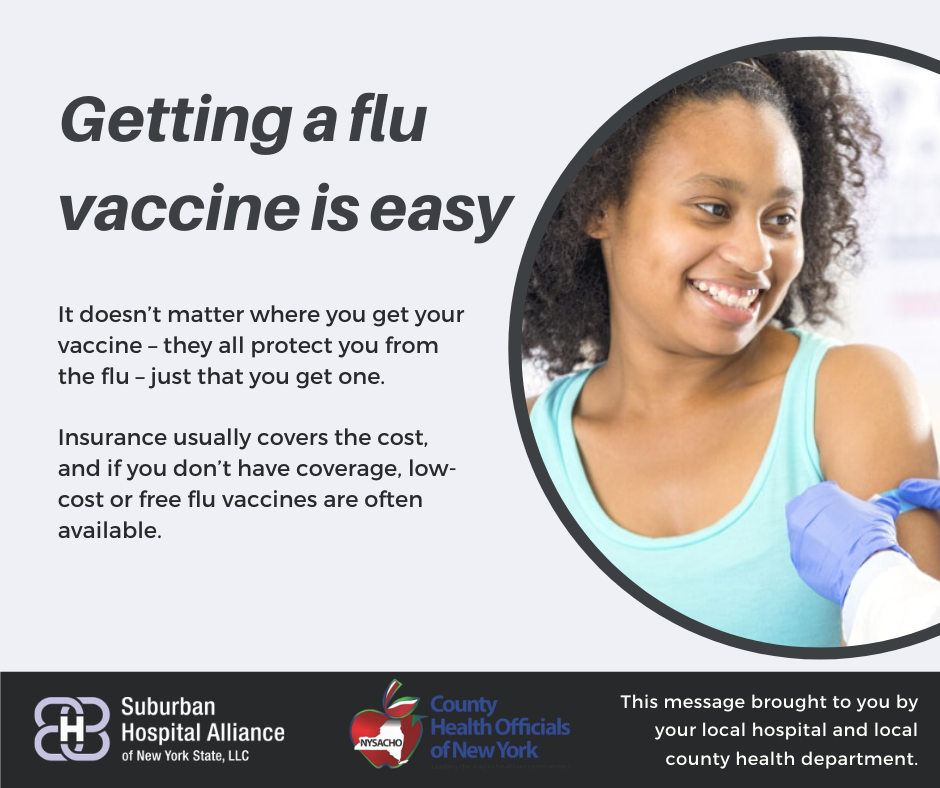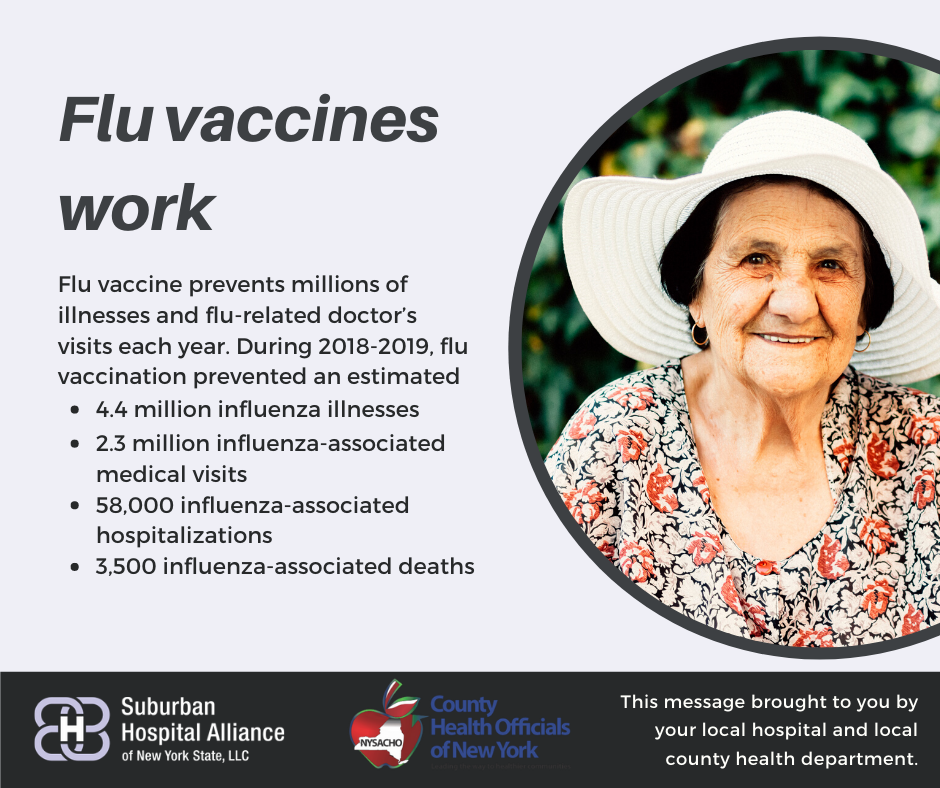Getting a flu vaccination is the first defense against a possible “twindemic” that could hit Long Island this fall and winter. The threat of the seasonal flu and COVID-19 hitting at once is a real possibility according to healthcare providers and public health experts. To help spread awareness and increase flu vaccine rates, the Suburban Hospital Alliance of New York State (SHANYS) and the New York State Association of County Health Officials (NYSACHO) have put together a flu vaccine social media campaign. The campaign aims to educate the community on topics including how the flu vaccine works, and how and where to get vaccinated.
Who needs a flu vaccine? Everyone.
The CDC recommends that everyone over the age of 6 months old get vaccinated. There are different vaccinations for different groups of people. For instance, there are high dose flu vaccines designed for those ages 65 and older.

Chronic Diseases and the Flu
It is especially important for adults with chronic diseases to get vaccinated every year, as they are at high risk of developing flu complications. Many of these conditions also increase the risk for serious outcomes from COVID-19.
Asthma
Individuals who suffer from asthma are at increased risk for flu complications, even if their asthma is under control or if they take mediation. The flu can increase inflammation of the airways and lungs, trigger asthma attacks, and also lead to pneumonia and other respiratory diseases.
Find out more about asthma and the flu.
Heart Disease & Stroke
The CDC reports that in recent flu seasons, about half of the adults hospitalized due to the flu suffered from heart disease. Flu illness is associated with increased heart attacks and strokes. Flu vaccination has been associated with lower rates of some cardiac events among people with heart disease, especially among those who had had a cardiac event in the past year.
More on heart disease and the flu.
Diabetes
Individuals with type 1 diabetes, type 2 diabetes, or gestational diabetes are at an increased risk for flu complications even if their condition is well-managed. Because diabetes can weaken the immune system against fighting infections, the flu can increase risk for pneumonia, bronchitis and sinus infections. Blood sugar levels can be difficult to manage when sick, so the CDC recommends following sick day guidelines.
Read more on the flu and people with diabetes.


